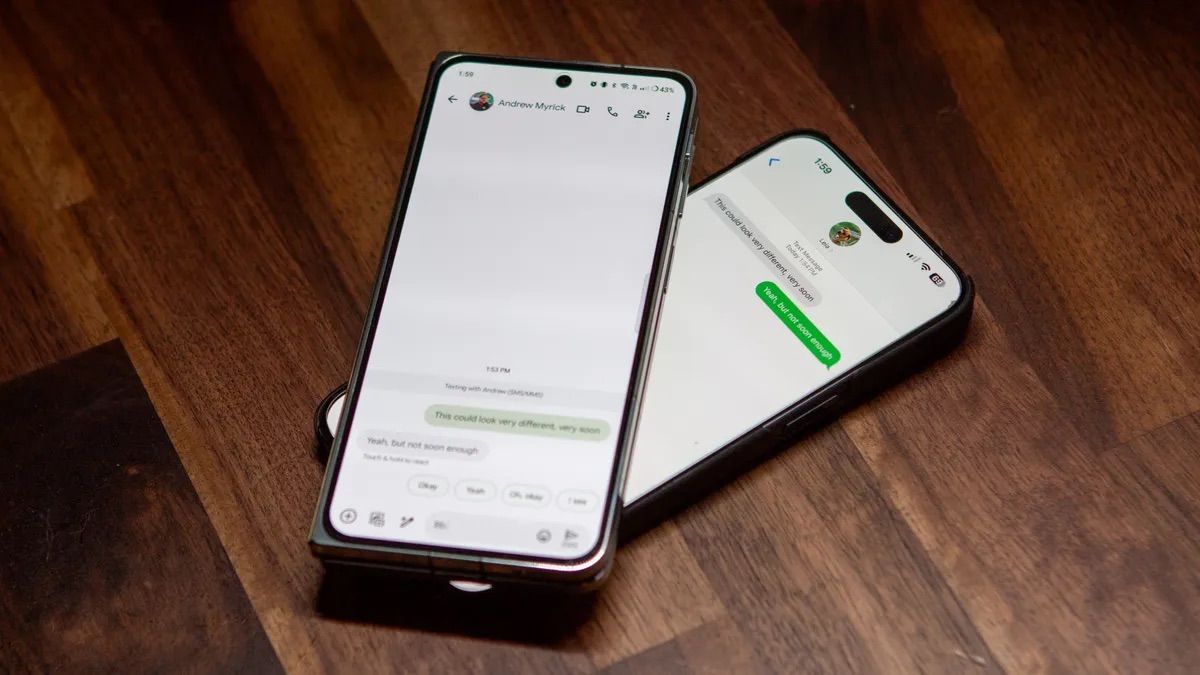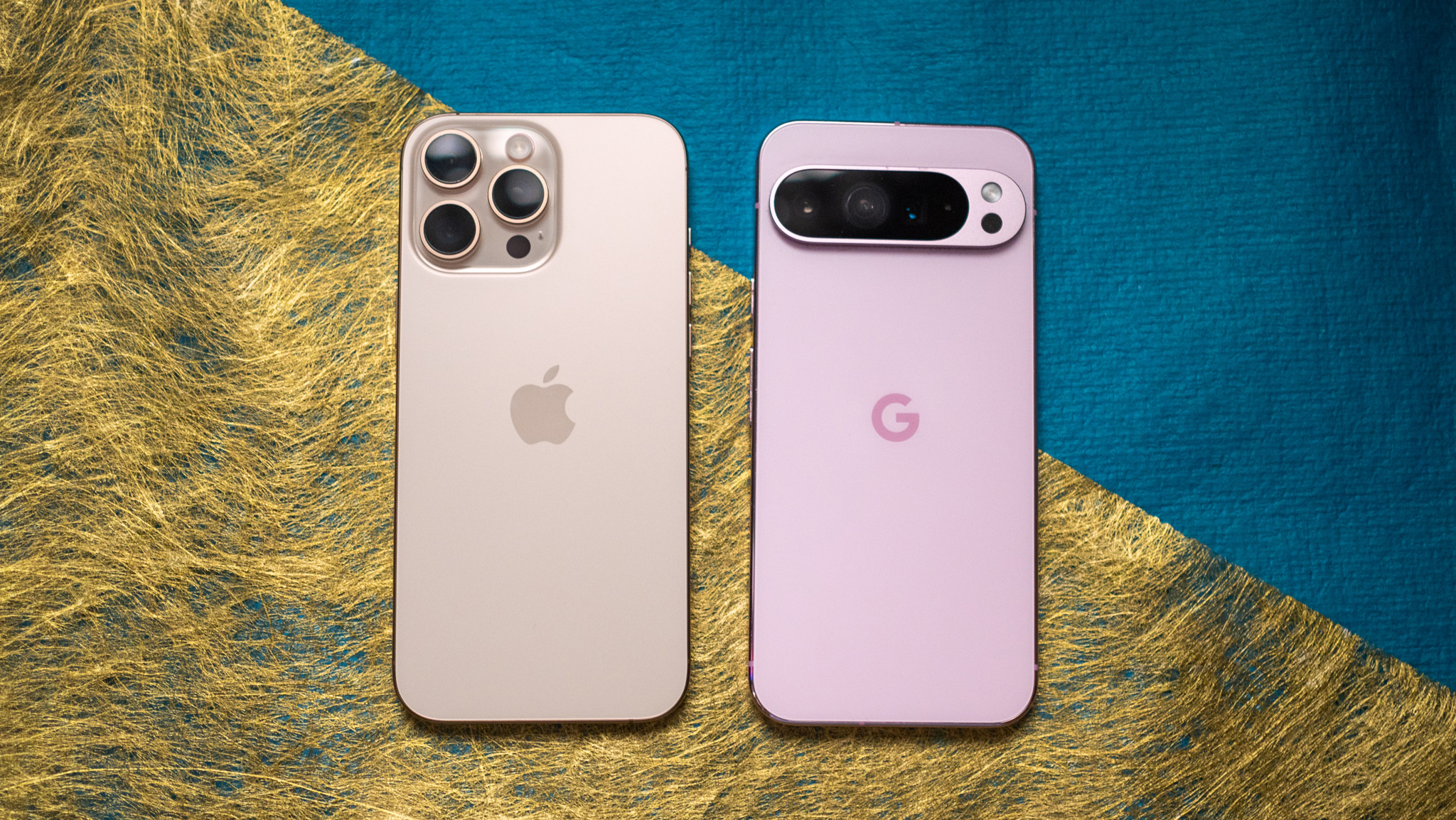Google shamelessly keeps trying to take credit for Apple adding RCS

The one-sided feud between Apple and Google over RCS messaging has been fun to watch. Rich Communication Services (RCS) is an alternative to SMS and MMS that is more secure, versatile, and feature-rich than those older messaging standards. However, when iPhone users message each other, they often use iMessage instead of SMS or MMS. That’s why Google famously paid for ad spots against Apple, trying to convince the company to add RCS to the iPhone and improve the quality of communication between iOS and Android users.
With iOS 18, Apple added RCS support to the iPhone. So, Google won, right? Well, no — Apple’s newfound support for RCS had nothing to do with Google. Someone should tell Google that, though, because it just published a blog post listing “the top four updates we’ve made to make the switch even easier.” Bizarrely, the company touts Apple’s support of RCS as something that it did to make switching between iOS and Android easier.
It’s true — even longtime iPhone users now find that it’s easier to switch from iOS to Android than ever. I’m sure RCS is part of the reason for this. However, as we’ve pointed out in the past, it’s likely that Apple moved to add RCS to iOS to appease regulators rather than to give Google what it wants. The European Union backed off designating iMessage a core platform service around the time Apple announced plans for RCS. More importantly, China requires all phones sold with 5G to support RCS, and that’s likely why Apple added it.
Despite whatever Google believes, it wasn’t involved in Apple’s decision to support RCS. I’m still skeptical that RCS is even as big of a deal in the grand scheme of the iOS versus Android battle as Google thinks it is.
Google is right (and wrong) about RCS on iPhone — and how it affects Android
I put my main SIM in the Google Pixel 9 Pro Fold shortly before iOS was publicly released and instantly noticed a few of my chats with tech enthusiast friends switched to RCS. Photos and videos could be sent in higher resolution, text message read receipts and reactions worked as normal, and group chats were much improved. Expectedly, almost all my frustrations with SMS and MMS messaging with iPhone users were resolved.
While I take exception with Google claiming responsibility for RCS messaging coming to the iPhone, I agree with the company’s general point. RCS improves the experience of texting between platforms, and it’s a shift I’ve experienced firsthand. However, the effect it has on consumer behavior and the market is limited to whether iOS users adopt it. First, they need to upgrade to iOS 18. Then, they need to keep the toggle for RCS flipped on and not turn it off manually to spite their Android friends. There’s also the matter of certain carriers not supporting RCS on iOS.
The first issue is the one I’m most concerned about. Historically, the adoption rate of iOS upgrades is higher than that of Android upgrades. That has slowed down in recent years, though. Anecdotally, almost none of my family and friends outside the tech circle have upgraded to iOS 18. I probably won’t get to text my parents with RCS unless I take their phones and literally upgrade them to iOS 18 myself.
The limited data we have about iOS 18 adoption suggests my situation isn’t outside the norm. According to Statcounter data from October 2024, less than 20% of iPhones are running iOS 18. If that number is accurate — and it’s worth noting Statcounter figures are estimates — that means there’s a maximum of one-fifth of iPhone users in the wild with RCS. Comparatively, more than 50% of iPhone users are on a version of iOS 17 as of last month.
In a recent interview with CNBC, Apple CEO Tim Cook said that “users are adopting iOS 18.1 at twice the rate that they adopted 17.1 in the year-ago quarter.” That’s the only official word we have from Apple in terms of iOS 18 adoption rates, but even that statement is vague. We don’t know if Cook is simply referring to people upgrading from iOS 18 to iOS 18.1, or lumping in the people who have jumped from older iOS versions straight to iOS 18.1.
The bottom line is that not all iPhones use RCS today. In fact, it’s fair to guess that relatively few iPhones are running iOS 18, and thus RCS adoption is probably low. It’ll take a while for RCS to become mainstream on iOS, and until that happens, it won’t have a meaningful impact on the iPhone and Android battle.
All the other reasons Google thinks you should try Android (and what we think you should switch to)

Put aside Google’s dubious claim to RCS support on iPhone, and it has a few solid reasons for stating that it’s much easier to switch between platforms. Android Switch is now available on a few brands, which allows users to transfer everything from chats and contacts to Wi-Fi logins to a new Android phone. Additionally, the company notes that it’s 40% faster to transfer data between iOS and Android using a cable.
Google also shares that you can set up the Google Pixel 9 without transferring data to try out the smartphone and transfer data later if you like it. Additionally, express setup makes it easier to move from one Android phone to another.
RCS didn’t magically make it easier to switch to Android overnight, and Google isn’t responsible for Apple adding it to new iPhones, like the iPhone 16 Pro Max. However, it is easier than ever to do it, and Android hardware is at its best. There are plenty of phones from Google, Samsung, and OnePlus that could entice iPhone users to cross the walled garden.
As a longtime user of both iOS and Android, I can safely say that the Google Pixel 9 Pro XL is the phone that’ll feel most like an iPhone. It has a ton of polish and excellent software features — in some ways, Google AI is better than Apple Intelligence. The reason I first left iPhone nearly half a decade ago was to try a foldable, and the Samsung Galaxy Z Fold 6 is a great option for people who want to do the same.
OnePlus and Samsung are gearing up to launch new flagships in the U.S., so maybe you wanna hold off on buying the OnePlus 12 or Galaxy S24 series now. However, Black Friday and Cyber Monday are approaching fast, and it’s worth keeping an eye out for a worthy deal on those models. In fact, we’ve already rounded up the best phones to upgrade to this Black Friday.
To sum up, it’s indeed a good time to move to Android. The platform is heading in the right direction, and it’s getting easier to switch between iOS and Android. But Google really needs to let the RCS issue go. Its obsession with Apple and RCS is one of many things the company does that makes iPhone users cringe.
Source link





